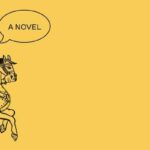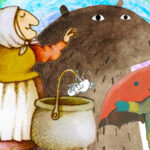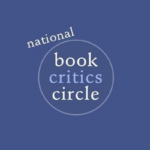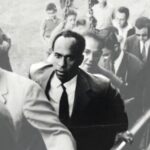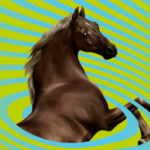On the Lawful Chaos of Journey to the West
This Week on The Cosmic Library with Adam Colman
The Cosmic Library explores massive books in order to explore everything else. Here, books that can seem overwhelming—books of dreams, infinity, mysteries—turn out to be intensely accessible, offering so many different ways to read them and think with them. Season one considered Finnegans Wake; in season two, it was 1,001 Nights; season three, the Hebrew Bible. This spring, in a season titled The Hall of the Monkey King, we’re talking and thinking about Journey to the West, the fantastical Chinese novel full of action and comedy and spiritual adventure.
Different belief systems—and just differences in general—collide and merge in Journey to the West, the classic Chinese novel at the center of this season. “In Dungeons & Dragons terminology, you’ve got this lawful good monk and then you have this chaotic good monkey,” says Kaiser Kuo (co-founder of China’s first heavy metal band and host of the Sinica Podcast) in this episode. And their quest succeeds: the combination of the monk Tripitaka’s lawfulness and the Monkey King’s chaos works out.
That intertwinement of differences shapes Journey to the West, on multiple levels. It’s about a quest for Buddhist texts, but Sun Wukong, the Monkey King, makes his way through Daoist self-cultivation and Confucian thinking, too. The divine realm includes Daoist deities such as the Jade Emperor, but it’s also a Buddhist realm, including the Buddha and Guanyin. There’s a playful engagement with everything here, and the translator Julia Lovell explains the world behind that kind of expansive interaction with various traditions:
The novel sprang from a much older set of legends about a real historical character who lived around 600–664 CE as a subject of the Tang empire in China. Now the Tang is one of the great eras of Chinese imperial expansion, when the empire extends from the edge of Persia in the northwest to the frontier with modern Korea in the northeast. Taizong, the emperor on the throne in Tripitaka’s time—he’s the character who in the novel dispatches Tripitaka off to India to fetch the sutras—Taizong is the vigorous, ruthless ruler who pushes the frontiers of his empire out so far.
And in the decades that follow this, the Tang empire is awash with cosmopolitan products and ideas. And still today in China, the Tang is celebrated as this period of phenomenal cosmopolitan flourishing of the empire and ideas throughout China.
In this episode, we think about how a wild novel gave that cosmopolitan attitude a new narrative life.
Guests in this episode include Kaiser Kuo, host of the Sinica Podcast; Julia Lovell, whose recent translation of Journey to the West is titled Monkey King; D. Max Moerman, scholar of religion at Columbia; and Xiaofei Tian, scholar of literature at Harvard.
____________________
Subscribe, listen, and enjoy the engaging interviews as we bring you The Cosmic Library. Episodes are available for free on Apple Podcasts, Spotify, Stitcher, PocketCasts, or wherever you listen to podcasts.



